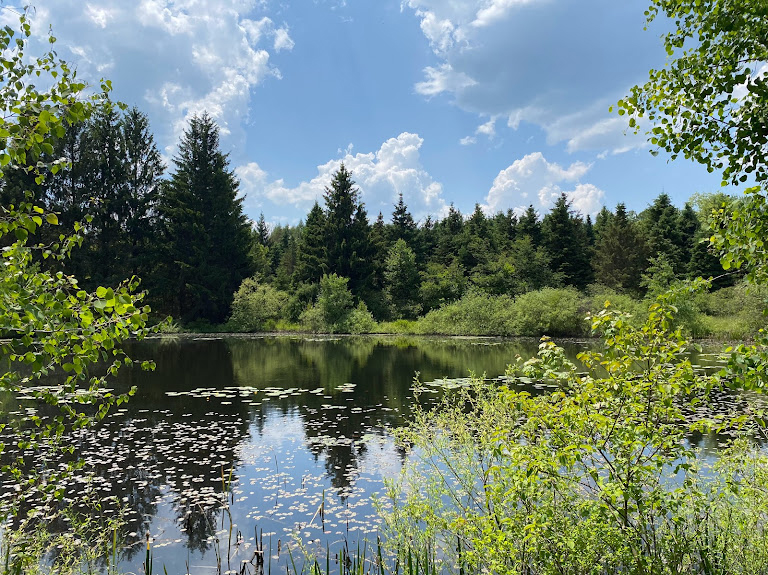by Kaylan Hubbard and Trey Talley
The Delaware Highlands Conservancy is a nationally accredited land trust working in the Upper Delaware River region of PA and NY to protect land, water, and wildlife through agreements called conservation easements. A conservation easement is a voluntary, legally binding agreement between a landowner and the Conservancy to permanently protect a property’s conservation value.
The Conservancy works with each landowner to craft a conservation easement that prioritizes the protection of the property’s conservation values while providing some flexibility for current and future activities and uses. The conservation easement is recorded in the property deed and the Conservancy works in partnership with the landowner and future landowners to ensure that the terms of the conservation easement are upheld in perpetuity.
The Conservancy’s Land Protection Coordinators answer a wide variety of questions from landowners interested in conservation. While many are specific to the individual landowner or their property, there are some questions that come up again and again. Here are our top five:
- What makes a property a good fit for a conservation easement?
The Conservancy’s mission is to conserve the forests, farmland, clean waters, and wildlife habitat of the Upper Delaware River region. We therefore prioritize properties that have an abundance of one or more of these resources. We also prioritize properties that are adjacent to land that has already been conserved, such as state forests, parks, and other conservation easements. While we will consider properties of any size, we typically focus our work on properties larger than 20 acres.
- Does a conservation easement mean the Conservancy owns the land?
No, the landowner retains ownership and use of their property. They can still sell or transfer the property, but all future owners will have to follow the terms of the conservation easement.
- Do conservation easements require public access?
No, Delaware Highlands Conservancy does not require public access for our conservation easements. It is up to the landowner to decide if they would like to allow public access to their property through a conservation easement.
- Do conservation easements prohibit hunting & fishing?
No, passive outdoor recreation, including hunting and fishing, is allowed. In fact, the Conservancy holds conservation easements on land owned by hunting and fishing clubs, and we recognize the value of these activities for the people and ecosystems of the Upper Delaware River region.
- Do conservation easements allow any future development?
The Conservancy’s Land Protection staff work with each landowner to draft a conservation easement that balances the landowner’s goals for current and future use of the property with meaningful and perpetual conservation. For undeveloped properties, this means setting aside a small area to allow for a new house or other structures to be built in the future. For properties that already have structures on them, it means limiting the number and location of new structures. In general, our conservation easements allow limited development as long as it does not harm the conservation values of the property.
If you are interested in learning more about conservation easements, please visit www.DelawareHighlands.org/landowner or call 570-226-3164.
Blurb about organization: Founded in 1994, the Conservancy has protected more than 18,000 acres of working farms and forests, clean waters, and wildlife habitat throughout the Upper Delaware River region and coordinates educational events and community programs throughout the year at the Van Scott Nature Reserve in Beach Lake, PA. For more information, visit www.DelawareHighlands.org, call 570-226-3164 or 845-583-1010, or email info@delawarehighlands.org.


